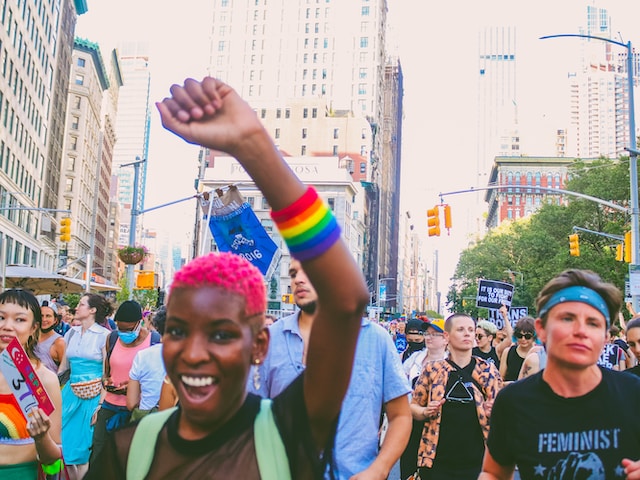One of the more obvious portrayals of the intersection between commerce and social issues is how companies have handled the rise of LGBTQ+ rights. In recent years, more companies than ever are showing their support for the community, but there is growing concern about the authenticity of such advocacy, especially when it seems to surface only during June.
According to 2022 Gallup statistics, 7.2% of U.S. adults identify as members of the LGBTQ+ body, a whopping 18 million individuals who are current or prospective customers for every type of business in existence. But as it turns out, with over 100 anti-LGBTQ+ laws passed in the United States—half of them during this year alone—companies have started to backtrack Pride pledges and campaigns after intimidation from anti-woke groups. However, in the end, what this essentially could mean is any business that categorically excludes the community will stand to lose out big time.
The loss of credibility, financial risks and potential reputational damage to companies that fail to back or bluntly oppose LGBTQ+ rights are unmistakably clear. Not only are they critical from an ethical and human rights perspective, but also for attracting and retaining the business of the community and its supporters. For example, the public retaliation against major corporations such as Chick-fil-A, Target and Anheuser Busch have triggered a sharp decline in sales and stock prices in addition to a growing concern for employees’ safety due to anti-LGBTQ+ protests and boycotts.
To date, Truett Cathy, Chick-Fil-A’s owner, maintains donations to those right-wing groups, a move that continues to reflect poorly on the brand.
LGBTQ+ culture – Black queer culture particularly – has reached peak exposure in modern-day society, spanning the arts, social media and politics. However, having long been marginalized and tokenized, the group continues to face greater burdens and power imbalances while their stories and contributions remain largely overlooked. According to them – an award-winning, online magazine serving and fighting for the rights of LGTBQ+ people – they share a few meaningful ways companies can truly help to support and celebrate the rich diversity of the Black queer faction and the community at large during Pride month and every month.

Demonstrating Genuine Representation
When a company works directly with queer people across the board – from casting them in ads without fanfare to retaining their creative input – its efforts show sustained support. It also guarantees that Pride-related endeavors are a true representation of queer celebration and not commercial exploitation.
Education
Investing in unbiased, respectful education about gender and sexuality facilitates open and inclusive communication. It creates a space for normalcy and strategy instead of a moment. It also leads to effective policies, such as inclusive dress codes, gender-neutral restrooms and zero tolerance for discriminatory behavior so everyone feels supported and safe.
Inclusive Internal Culture
The most effective way to make team members feel valued is to create an environment that encourages authenticity. Open and inclusive hiring policies that allow individuals to feel free to express their identities while at work not only motivate them to do their best but also amplify the authenticity of Pride campaigns.
Intentional Endorsements
A commitment to transparent advocacy and action for the queer community throughout the year – not just during pride month – reinforces a company’s dedication to diversity. Brands should look to make immediate impacts by giving back to the community by implementing recurring donations and sponsorships for local events and regularly sharing information about LGBTQ+ legislation, especially if they directly profit from Pride.
At the end of the day, it is great to know there are companies that have already made and continue to make a sincere commitment to true equality. Ben & Jerry’s ongoing partnerships with organizations to fight against anti-LGBTQ+ legislation never go unnoticed. Brands like YouTube and Converse also make effective contributions; YouTube has teamed up with Willow Pill (a popular American drag performer) to donate to The Trevor Project and Converse has pledged over $2.5 million to LGBTQ+ organizations since 2015.

Let’s see more brands move past one-month promises and strive to be true allies with faithful, year-round commitments that support and include the LGBTQ+ community altogether. Afterall, everyone benefits.








